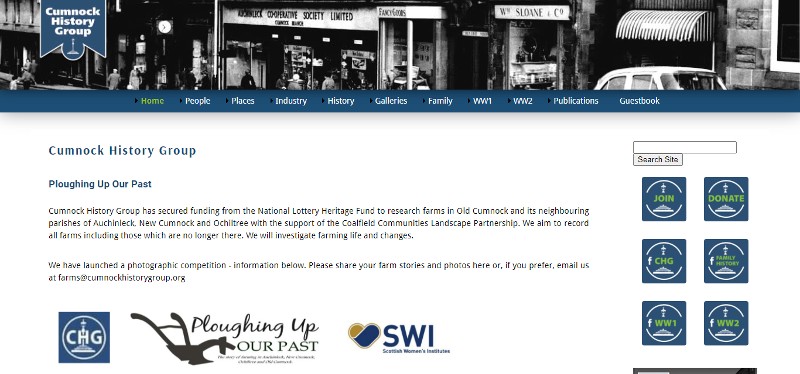James, by the grace of God, King of the Scots, to all honourable persons throughout his realm, both among the clergy and laity, greeting.
Know that for the special favour which we bear towards our beloved James Dunbar of Cumnock, for the growth and good government of the barony of Cumnock, especially in the neighbourhood of the parish church of Cumnock, and also for the well-being and civil freedom of our lieges gathered there, we have made and created, and by this our present charter do make and create, the ecclesiastical lands and glebe of the said church of Cumnock, extending to two merk lands of old extent, with the rejoining grounds in the said barony of Cumnock within the county of Ayr, a free burgh in barony to be called the Burgh of Cumnock in perpetuity.
We have likewise granted to the inhabitants of the said burgh, present and future, full power and absolute right to buy and sell in the said burgh wine, wax, pitch and bitumen, woollen and linen cloth, both broad and narrow, wool, skins, oxhides, salt, butter, cheese, and all other kinds of merchandise, together with power and liberty to possess and keep in the said burgh bakers, braziers, tanners, butchers, sellers of flesh and fish, and all other tradesmen belonging to the liberty of a burgh in barony.
We have also granted that in the said burgh there shall be free burgesses, and that the same shall have power in all future time to elect annually bailies and other officers, needful for the government of the said burgh, and that the said bailies and officers shall be elected with the consent of the baron of Cumnock for the time being, and that no officers shall be elected without the approval of the baron, and that the persons chosen as bailies of the said burgh shall reside within the same.
With power to the burgesses and inhabitants within the said burgh to have and maintain within the same, perpetually, a market cross and a market on the Saturday of each week, as well as an annual public fair on the day of St. Matthew the apostle and evangelist, and for eight days thereafter, with right to uplift dues, along with all other privileges which belong to public fairs or may justly be regarded as belonging to them at any time hereafter;
And with power and liberty to our beloved clergyman, Master Thomas Campbell, canon of Glasgow and prebendary of the said church of Cumnock, and to his successors, to feu the aforesaid glebe lands, in whole or in part, in burgh roods for building purposes, in such a way as shall be for the profit of the said church and its prebendaries, or at least without loss to the church, provided the consent of the said baron for the time being is obtained;
The lands of the said church to be held and possessed, as is here set forth, for ever, with all the privileges, liberties, and advantages written above, together with all other benefits, titles, and rights which pertain to a free burgh in barony or may justly be regarded as pertaining thereto in the future, and that as freely as any burgh in barony is given in fief within our kingdom by ourselves or our predecessors without any impediment or revocation whatever;
Saving, however, and reserving to the said James and his heirs, the barons of Cumnock, their own liberty and their right to hold a court within the barony of Cumnock, together with the privilege of blood and bloodwite in the same court over the inhabitants of the said glebe, to be enjoyed, used, and exercised by them and their bailies in the future according to the tenor of their infeofment, ancient usage, and general custom;
In testimony whereof we have ordered to be affixed to our present charter our great seal in the presence of the following witnesses:
Alexander, Archbishop of St. Andrews, Chancellor;
William, Bishop of Aberdeen, Keeper of Privy Seal; Andrew, Bishop of Caithness, Treasurer; Archibald, Earl of Argyll;
Matthew, Earl of Lennox;
Andrew, Lord Gray;
Master Gavin Dunbar, Archdeacon of St. Andrews; Master Patrick Pauntere, Secretary;
Richard Colville of Ochiltree.
At Edinburgh, the 27th September 1509,
and the twenty-second of our reign. (James IV of Scotland)

